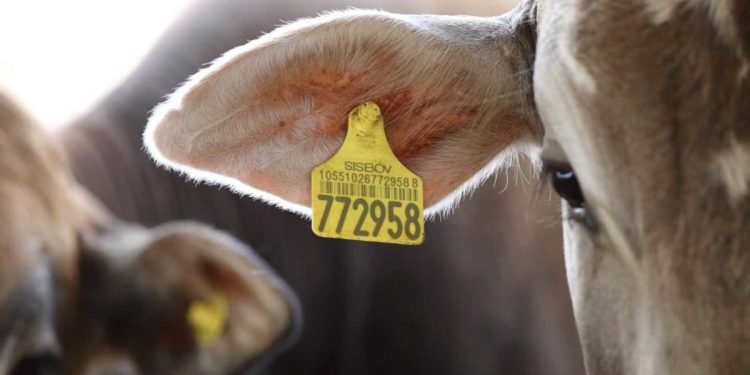Bloemfontein
In a revealing interview with the Weekly Observer, Dr. Jane Buys, Safety Risk Analyst for Free State Agriculture – Vrystaat Landbou (FSA), highlighted the alarming rise in livestock theft incidents in the Thabo Mofutsanyana District.
Accounting for nearly half of the reported thefts in the Free State, this district—home to ten of the thirteen border towns—has become a critical hotspot for cross-border criminal activities.
Buys emphasized the complex nature of these crimes, noting the involvement of both local markets and cross-border syndicates, while also lamenting the inadequate response from key law enforcement agencies.
“Ten of the thirteen border towns are situated in this district, making it crucial in terms of cross-border stock theft,” she said, adding that the same applies to cross-border criminality in general.
However, Buys clarified that not all cases of livestock theft can be attributed to Lesotho nationals. “We are not saying that 100% of stock theft crimes are committed by Lesotho nationals, but when towns adjacent to the border experience criminal activity, it is usually associated with cross-border criminality,” she stated.
She also mentioned that stolen livestock often ends up in local markets within South Africa, particularly in provinces such as Gauteng.
Regarding the recovery of stolen livestock and trafficked to Lesotho, Buys pointed to efforts by the Cross Border Crime Prevention Forum (CBCPF) under the Civilian Secretariat under the Department of Community Safety, Roads, and Transport.
Along with the Border Safeguarding Forum under the South African National Defense Force (SANDF), the CBCPF, chaired by Litaba Mohapi, is actively engaging counterparts across the border, including the Lesotho Mounted Police Service (LMPS), to collaborate with the SANDF and the South African Police Service (SAPS) to combat livestock theft and other criminal activities.
“It is not the mandate of the SANDF to focus on crime but that of the police service,” Buys remarked, expressing frustration that key stakeholders like the SAPS and SANDF have been reluctant to participate in these forums regularly.
Additionally, Buys highlighted good cooperation from the Lesotho Mounted Police Service (LMPS) with private livestock theft investigators in some border towns to recover stolen property.
“The key is communication. As soon as an incident is reported, everyone should be on the lookout for stolen sheep or cattle if they have crossed the borders into Lesotho,” she said.
The recovery rate with some of FSA’s private investigators, supported by the LMPS, is said to be nearly 80%. “There is room for improvement from the South African police side, as they struggle to get authorization to go into Lesotho from the Stock Theft Unit to investigate and look for the stolen stock,” Buys noted.
Buys also discussed the farming communities most affected by organized crime syndicates, particularly in northern towns bordering Lesotho such as Qwa-Qwa, central parts like Ficksburg and Fouriesburg, and some areas of Clarens and Clocolan, which was a hotspot last year but has recently seen improvements.
“On the southern side of the border, it’s usually Wepener, but it has also improved. However, the Hobhouse and Zastron areas remain problematic,” she continued.
Regarding the involvement of law enforcement officers in these organized crimes, Buys mentioned conducting an informal investigation in farming communities, where a handful indicated alleged involvement of police officers in livestock syndicates.
“This can be attributed as one of the issues of us not getting impact or support from law enforcement,” she said.
According to Litaba Mohapi, Cross Border Crime Prevention Forum Chairperson, stock theft remains the biggest problem between the two countries.
Similarly, he reiterated that the crime is not only committed by Lesotho Nationals but South African citizens as well, “Let us not think that stock theft only involves Basotho alone, it is a syndicate between these two countries.”
As South African citizens shy away from low paying jobs, Mohapi explained that stock theft incidents are often a culmination of cheap labour and exploitation of Lesotho Nationals, who in some cases, are trafficked into South Africa as cheap labourers with the promise of a decent income.
Having worked in SA for extended periods of time and victims to exploitation from not being paid, after being dismissed by their employers, the said Nationals would then retaliate as they are more knowledgeable of the area, consequently, individuals would be quick to conclude and term such incidents as theft where as the former labourers are remunerating themselves.
“This crime is often prompted by cheap labour and exploitation. There is what we call a Gentleman’s Agreement where a South African livestock farmer agrees to brand cattle that has been trafficked into SA to sell at auction, once the cattle has been branded, it legally belongs to the South African counterpart with the Lesotho one having been cheated out on the deal.”
Mohapi reported that there are organised groupings who target farms with livestock wealth and take the whole kraal and not two or three cattle, after branding the stock, these heavily armed syndicates then traffic the stock to Lesotho or local markets.
“All the towns bordering Lesotho are affected by cross-border stock theft, not a single to has been spared,” he said.
Mohapi expressed challenges with the border not having proper roads as they have been deliberately destroyed by the said syndicates to hinder law enforcement patrols in the area.
“These syndicates have also vandalised the fencing to make movement of cattle trafficking easier.”
Moreover, the coordinator highlighted that these organised crime groupings have their own illegal ways to brand mark stolen cattle and traffic them in South Africa at auctions
“The syndicates know where the market is within the country, what is worth noting however us that there is an exchange of livestock between the two countries,” he continued further adding that Lesotho and South Africa are equally affected by stock theft and is the most committed crime along the border line.
As a Forum, the coordinator explained that they hold meeting with communities as the as the one’s who witness these occurrences.
Contacted for comment, livestock farmer Louis Grové in Ladybrand reported that livestock is stolen daily on his farm, with losses averaging 180 large stock to 300 small stock per month and crossed over into Lesotho through porous borders.
The farm has fallen prey to South African stock theft syndicates as well, resulting in a loss amounting to R800 000 of two year’s worth of income.
“A single sheep is about R3 800, so losing 200 of them is a huge R800 000 loss, and the next two years will be difficult. Some of the sheep had not lambed yet, so the figure is more than we estimated,” Grové stated.
According to Grové, an FSA investigator has significantly assisted in reducing such organized crime groups.
“It’s better now because we tightened security measures, installed cameras, alarms, and double electric fences, which are costly and, of course, not budgeted for,” he said.
Similarly, Grové noted the lack of participation from law enforcement officers in responding to theft incidents, stating that they often arrive three days after being called.
“The police are nowhere to be found. Apart from that, FSA private investigators are the ones assisting us the most,” he concluded.






